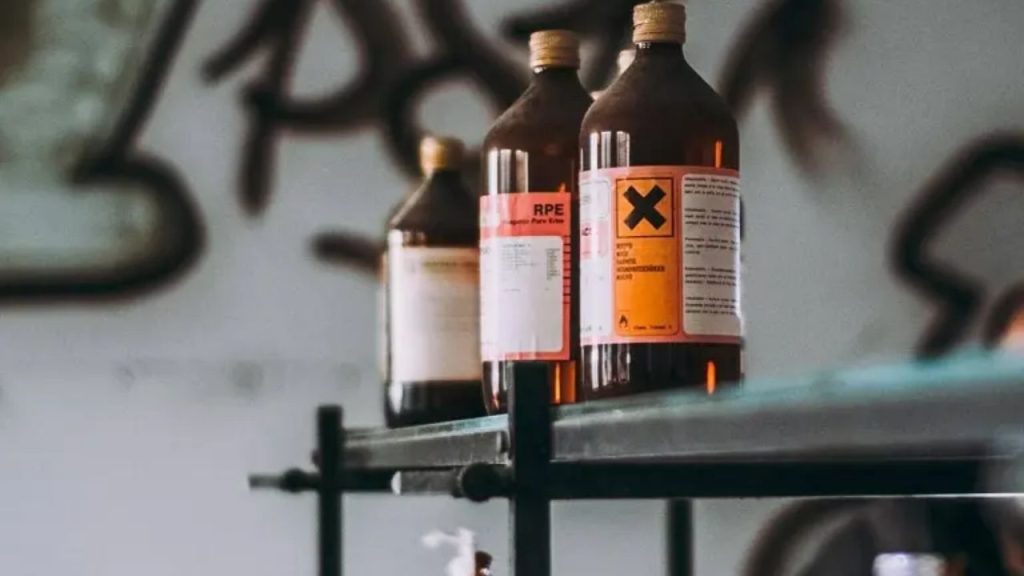In a tragic event from Odisha, India, a 45-year-old farmer resorted to consuming poison in an act of desperation after his repeated pleas for justice went unheard. His daughter, Kalpataru Ojha, a 16-year-old girl, had been abducted on May 27, 2025, and despite filing a First Information Report (FIR) with the police, the investigation seemed to have stalled. The father’s action is a stark reminder of the increasing frustration and desperation faced by citizens when law enforcement is perceived as ineffective.

This incident, where the farmer’s emotional and physical collapse highlights a larger issue, brings into focus the accountability of local law enforcement agencies, the mental health implications for families caught in such dire situations, and the crucial role of timely police intervention.
Man Consumes Poison After Police Inaction
| Topic | Details |
|---|---|
| Location | Kendrapara, Odisha, India |
| Incident Date | July 16, 2025 |
| Victim | Kalpataru Ojha (16-year-old daughter abducted) |
| Father’s Action | Consumed poison due to police inaction |
| First Report Filed | May 28, 2025 |
| Outcome | Father remains in critical condition; investigation ongoing |
| Official Intervention | Odisha Home Department intervened; special team formed |
| Link to Official Information | New Indian Express |
The heart-wrenching incident underscores a disturbing pattern in Odisha, where families resort to extreme measures due to perceived police inaction. Earlier this year, a similar case emerged in Balasore, where a student tragically ended her life after her sexual harassment complaints were allegedly ignored. Both cases, along with several others, illustrate a dangerous trend that needs to be addressed urgently.
The case of Kalpataru Ojha’s abduction and her father’s subsequent attempt to take his life is a stark reminder of the human toll of police inaction. It underscores the need for prompt, effective law enforcement in missing persons and abduction cases. Families should not be left to feel abandoned when their loved ones are at risk.
As we look to prevent future tragedies, it’s critical that police, government officials, and communities come together to ensure a swift response to such dire situations. Only then can we protect families and rebuild trust in the system meant to keep them safe.
Understanding the Context: What Led to the Father’s Desperation?
On May 27, 2025, Kalpataru Ojha went missing from her home in Kendrapara, a district in Odisha. The father, understandably devastated, immediately approached the police and filed an FIR the next day, hoping for a prompt investigation. However, weeks passed with little to no progress in locating his daughter. Repeated pleas to the police for action were allegedly ignored, and the family felt abandoned by the very institution meant to protect them.
The emotional distress of losing a child combined with the feeling of being ignored by authorities drove the father to an extreme act of self-harm. He consumed poison on July 16, 2025, and was found in critical condition. Initially treated at a local hospital, he was later transferred to SCB Medical College and Hospital in Cuttack, where his condition remains dire.
This situation highlights the urgent need for police accountability and timely action in missing persons and abduction cases. Delays and negligence in such sensitive matters can have severe consequences, as seen in this case.
The Police Response: Steps Taken to Resolve the Crisis
Following the father’s attempt to take his life, there was a public outcry that demanded immediate action. The Odisha Home Department quickly intervened and instructed the Director General of Police (DGP) and the Superintendent of Police (SP) of Kendrapara to expedite the investigation. A special team was formed to track down Rajendra Jena, the suspected abductor, and locate Kalpataru.
The investigation also extended beyond local borders, with search operations now occurring in Hyderabad and other locations. Police have reportedly begun questioning the suspect’s family and associates to gather more information about the whereabouts of the missing girl.
Despite the police’s current efforts, the fact remains that timely intervention could have prevented the father’s suicide attempt. This tragic case sheds light on the critical importance of police response times and the emotional toll on families awaiting justice.
Why This Matters: The Bigger Picture in Odisha
This incident is not an isolated one. In Odisha, the public trust in law enforcement has been increasingly questioned, especially in cases involving missing persons, abductions, and sexual harassment. This issue is not only affecting the lives of individuals directly involved but is also eroding confidence in the criminal justice system as a whole.
As more people experience similar frustrations, the emotional toll on families grows. This is compounded by the fact that victims and their families feel powerless when bureaucratic delays or police inaction prevent swift resolution of cases. The rise in such instances calls for immediate reforms in police training, public safety procedures, and overall responsiveness to emergency situations.
What Needs to Be Done: Key Recommendations for Law Enforcement
1. Timely Action on Missing Persons Cases
When a child goes missing, every minute counts. Law enforcement agencies must act swiftly by issuing alerts, coordinating with other states, and forming dedicated teams for abduction cases.
2. Enhanced Communication Channels
Families should have clear and consistent channels of communication with authorities. A transparent process can help reduce frustrations and avoid miscommunication.
3. Improve Investigation Procedures
Police must take swift and concrete steps to investigate, with a focus on specialized training for handling missing persons and abduction cases.
4. Strengthening Community Policing
Local communities should work closely with law enforcement to improve community policing strategies. This will increase awareness of issues within the community and provide law enforcement with the necessary support to combat such crimes effectively.
5. Raising Public Awareness
Increasing awareness of the procedures for reporting crimes and the rights of victims can help prevent such tragic incidents. Educational campaigns should be conducted to inform the public about the process of filing complaints and seeking justice.
What You Can Do: Supporting Families in Crisis
If you or someone you know is facing a similar situation, it’s essential to stay calm and focused. Here are some steps that can help:
- Document Everything: Keep records of all your interactions with law enforcement. Make sure to follow up regularly and ask for updates.
- Reach Out to Support Groups: Many non-profit organizations work to support families in crisis. These organizations can provide legal aid and help you stay informed about your rights.
- Stay Persistent: If you believe your case is being ignored, consider reaching out to higher authorities or advocacy groups for assistance.
- Contact Media: In some cases, public pressure can encourage authorities to act more swiftly. Don’t hesitate to contact the media to highlight your situation if you feel it’s appropriate.
Vizag Police Expose Shocking Kidney Trade: Odisha Man’s Bid to Sell His Organ Uncovered
FAQs
Q1: What can be done if police are not responding to a case?
A1: If police are not responding promptly, you can contact higher authorities such as the Superintendent of Police (SP) or the State Home Department. In some cases, media attention can also speed up the investigation.
Q2: What support is available for families dealing with missing persons?
A2: There are several non-governmental organizations (NGOs) and victim support groups that can offer legal and emotional assistance. Government programs also provide resources for families in distress.
Q3: How can communities work with law enforcement to prevent crimes?
A3: Communities can engage in neighborhood watch programs, report suspicious activities, and work with local police to raise awareness about crime prevention.





